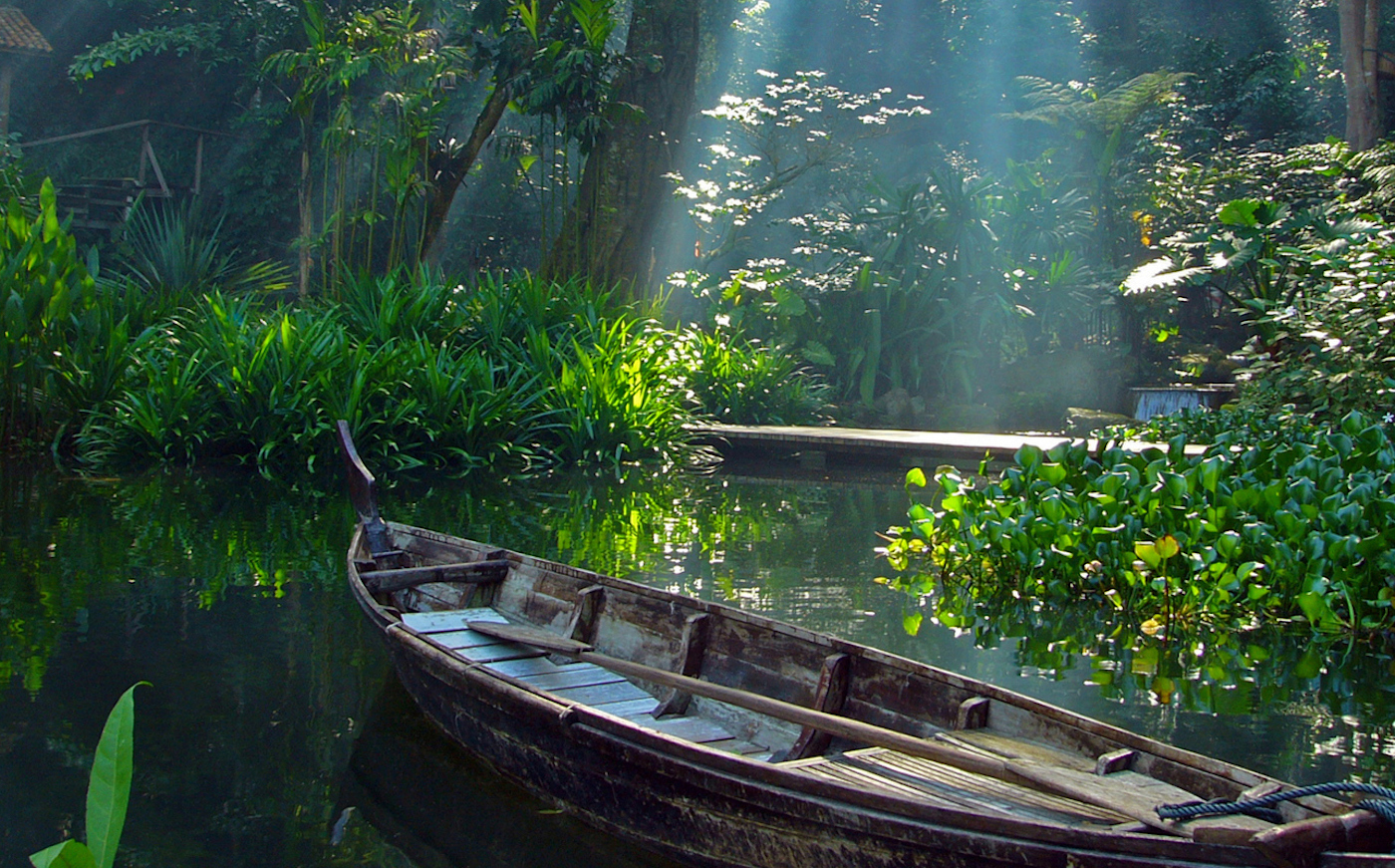
As helping hands reach out, Chua talks about the rainforest sanctuary in Penang (All photos: Tropical Spice Garden)
A “good chaotic” week bookended by despair and joy has left Katharine Joan Chua speechless and in tears after months of worry and uncertainty.
“Suddenly, it feels like we have a business again and we need to awaken the whole team to step up and step up very quickly to respond to the outpouring of support and love from the community,” says the owner of Tropical Spice Garden (TSG), overwhelmed by the response to her plea, which was sent out via a video early in August, to save it from shuttering.
“Doors have been opening and support has just been amazing. I pray it will be enough to sustain us. I could never go back again and ask for more, so we have to make this work!” asserts Chua, who manages the rainforest sanctuary on the northern coast of Penang together with her husband, Kenneth Khoo.
Visitors are the lifeblood of TSG, which opened in 2003 and had a footfall of about 7,000 every month before the pandemic. When lockdowns forced it to close, the team cut costs where possible and banked on online sales and virtual cooking classes to keep going. Sadly, after a protracted struggle, “we literally bled dry”.
In April, Chua had thought of fundraising but was not sure what form it should take, or who would help during these hard times, when so many worthy causes were all reaching out. There was another dilemma: How vulnerable did she want to make herself and the business?
tropical_spice_garden_2.jpeg
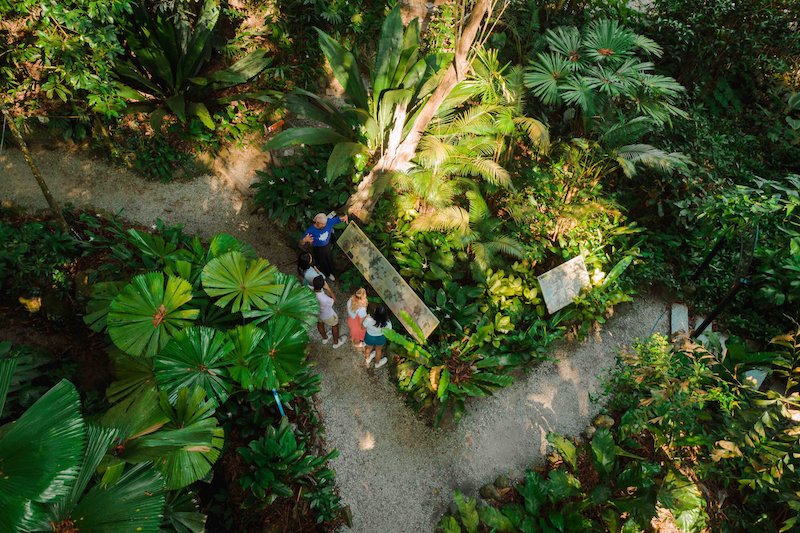
In June, after much soul-searching, she and Khoo decided to reset by going back to where they started, with the ground, and pick up the pieces from there.
“Hati & Bumi (Heart & Soil) is our value mission statement. It carries our message of hope and the paradigm shift we were entering into: resetting our values, simplifying the business and returning to our core business and what matters — the earth, the whole ecosystem — and making that our priority and the start and end point.
“We wanted a community to grow with, to recover and heal with. We also realised we needed to build resilience into the project. Hence Spice Fam, our crowdfunding campaign, was born.”
TSG is asking fellow Malaysians to “Join the Family, Save the Garden” by subscribing to Spice Fam, its community-powered garden membership programme.
The last 16 months have been “a journey of faith” for Chua. “Because of Covid-19, our doors have opened and shut … our existence is hanging by a thread. Although we have always prided ourselves on running a sustainable business that is environmentally conscious and places people at its heart, nothing could have prepared us for this challenge. We urgently need the community’s support to help keep this garden open for future generations to come.”
Those who wish to help can either purchase a Spice Fam membership (from RM25 per month) or make a donation on the campaign site (tsgspicefam.com). The subscription will give members unlimited entry to TSG and they can join monthly activities, events, virtual classes and workshops (currently ongoing) from anywhere in the world. Members are also entitled to exclusive garden camping passes.
cooking1.jpeg
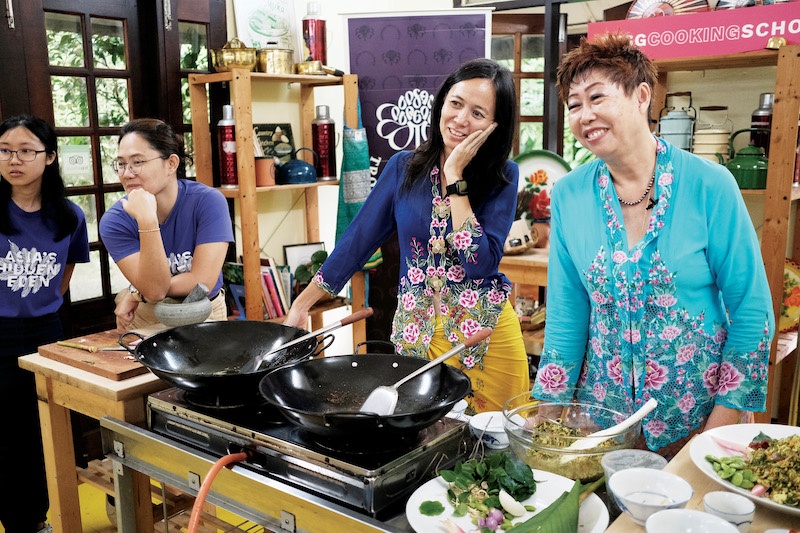
Every cent raised will be used to maintain the garden and grow the Spice Fam community, Chua says. The garden is home to more than 500 species of flora and fauna from around the world, and spices and plants rooted in Penang and Malaysia’s history and culture. With the pressing need for green healing spaces in the new normal, she and Khoo want to bring the young and old together and nurture a love for nature in them.
Nature bonds the pair, who held their wedding in 2006 at the eco enclave’s Bamboo Garden, Chua shares. “He was our garden curator — I married the head gardener! My bouquet was a single Tacca (bat lily)”, a gorgeous bloom special to their very own Eden.
TSG’s tagline — Asia’s Hidden Eden — came about during a minor rebranding exercise four years ago. “We were still sinking into it when Covid hit. The tagline still feels relevant, perhaps even more so. For me, ‘hidden’ captures the spirit of who we are. We have never been showy, mainstream and mass, but a little secretive and intimate, a surprising little gem. And Eden, well, that just says it all!”
Few people can boast that they work in the garden of Eden. Chua, a sociology and education graduate, can. Always drawn to nature — “an inherent streak” — she was TSG’s first hired staff when it opened to the public.
“You just can’t go wrong with nature. And it was such a beautiful space — so alluring, so comforting somewhat,” says the then visitor coordinator, who had to face one question people always asked: Why do we have to buy tickets to enter a jungle?
dusky_leaf_monkey_fauna.jpg
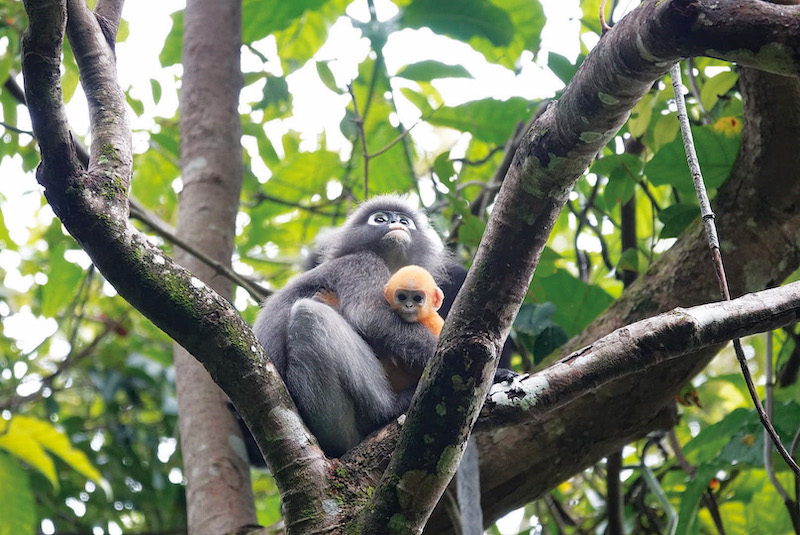
“On hindsight, as long as we remained merely a ‘tourism attraction’, that would always be an uphill battle with Malaysians. Now, in our reset, we are beginning to identify more with being a community space in a garden, where nature meets culture. It has different connotations and we engage with the space very differently. We can see fewer and fewer people asking, ‘What am I doing here?’
“I believe our visitors take home the little microcosm of lush green life that is imprinted on people, the sense of wildness and the uncertainty of everything.
“No one day feels the same at the garden, with different flowers blooming, different creatures roaming and different trees shedding or dormant. Everything is always changing and evolving. The experiences we curate serve to enhance that. To enjoy something wholesome in a green space is just good for the soul.”
Chua certainly puts her money where her mouth is. Earlier this year, “against all odds, and against all the wisdom of the world, Kenny and I took over as sole owners of TSG”. In 2010, together with long-term business partners David and Rebecca Wilkinson, they had bought out the project from Bertam Consolidated Rubber, its original investors.
With Covid’s relentless grip on the economy, it may seem like an unwise move. But their decision is entwined in the heart and soil.
“The garden is truly a sanctuary for us. Our kids were raised here and we have lived and breathed this space coming up to 18 years now. With the very deep places of introspection the first lockdown led us to and the value changes it brought to TSG’s vision, it felt in many ways that we were just beginning. It’s like the last 18 years were preparing us for the now and this new chapter. We just didn’t feel it was time to let go. We felt it was still worth the fight.”
community_cyclists1.jpg
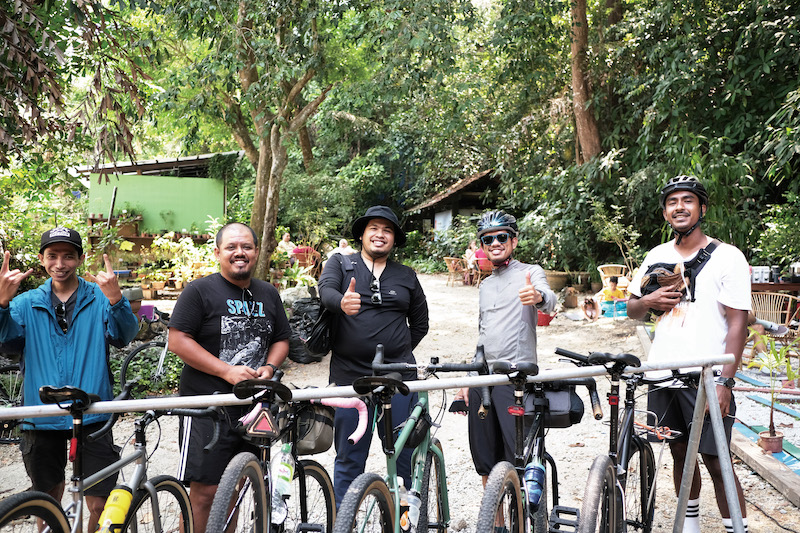
She adds that her children, aged 11 and six, have been very much a part of the journey, and now, the fight for the gardens.
“We withheld nothing from them and there were nights we prayed and cried as a family — crying out for clarity and God’s good plans to be done on this land, with or without us. It really was a surrender — to not hold on to this project with fists clenched tight but with open hands, to say, if it’s not meant for us, then let this pass from our hands.
“I would like to think that whatever happens in the future, the gardens would leave deep, meaningful imprints on all of us. That for the time we were here, it was life-giving on so many different levels.”
Since taking over TSG, the couple has put various things in place, such as establishing different holding areas on the grounds: the Cooking School (developed from the earlier Museum), the glass Pavilion for events and weddings, and the Red Grove Deck for more outdoor gatherings. “I think the key was the experiences we were working towards, how the space is being curated and interpreted better,” Chua says.
They are in no hurry to expand the naturally landscaped garden spread across five acres, surrounded by land on a steep gradient. “For now, it’s about protecting the hills and the water sources as best we can. We’re just happy to have the hills and trails behind us better explored and marked for our camping visitors to enjoy.”
Spices and herbs take up four terraces — original terracing left over from the former rubber plantation that occupied the land. They were a major draw pre-Covid and Chua hopes, in time, she will have the funds to develop the story of the spice trade and tell it better and more clearly.
family_camping.jpeg
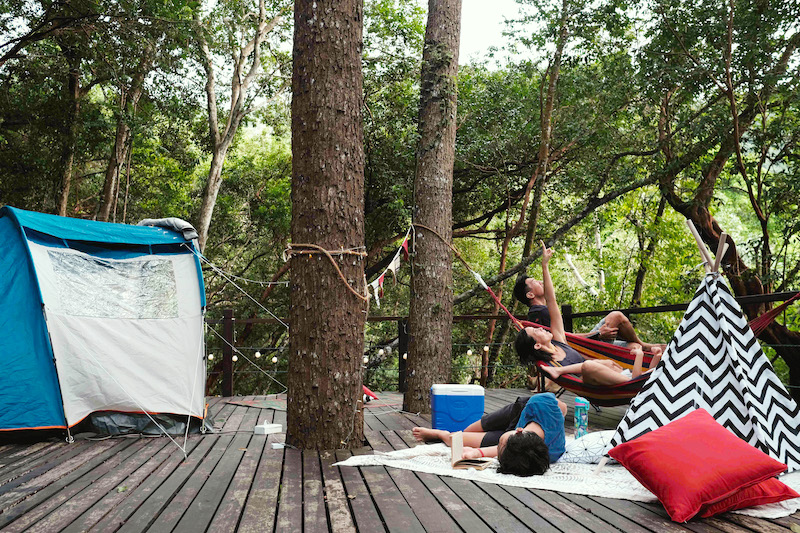
But she believes that once visitors set foot on the garden, they will soon realise it is more than just looking at and learning about spices and herbs. “The experience of walking through a garden rainforest and its effects on all our five senses take over.”
Asked what she gets from getting her hands dirty, she brings science into the picture. “So much research has been done on being in nature and all the benefits of that. Studies on children getting lost in nature — with no agenda and no programming, where they are allowed to just be and create within the space and with whatever resources naturally found — show it is so healthy for kids.”
When we dig into good soil, microbes in the soil enter our body, where they aid digestion and strengthen the immune system. As we breathe in nature, we inhale terpenes, aromatic chemical compounds found in trees and plants. “It’s like breathing in essential oils from diffusers at home, which affects us emotionally, physiologically and physically.”
Immersing in nature reduces our cortisol levels, the stress hormone released by the adrenal glands. “We come back beaming because everything just comes alive when we are outdoors,” Chua explains.
As nature awaits to reveal and heal at TSG, what can visitors look forward to when it reopens?
Camping is the next new thing at the garden. The rugged visitor can choose to do it alone, while those who prefer more comfort can “glamp” in the Glass Treehouse, an air-conditioned pavilion from which they can escape onto the Red Grove Deck and camp outdoors for a fresh experience.
“We will continue to collaborate with and bring together amazing partners to do life together through wellness, culture and arts, education and family. We really feel we are just getting started. We just don’t need another lockdown so we can have these things happen,” Chua says.
This article first appeared on Aug 16, 2021 in The Edge Malaysia.


